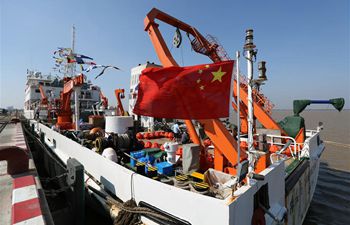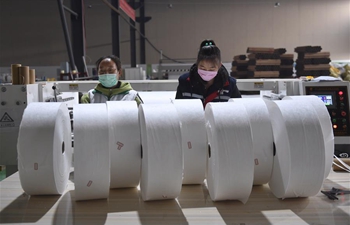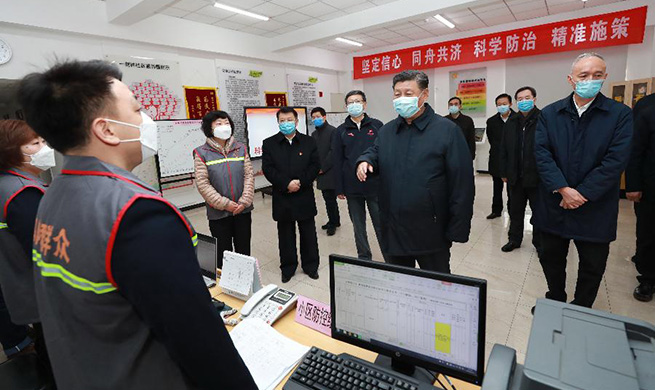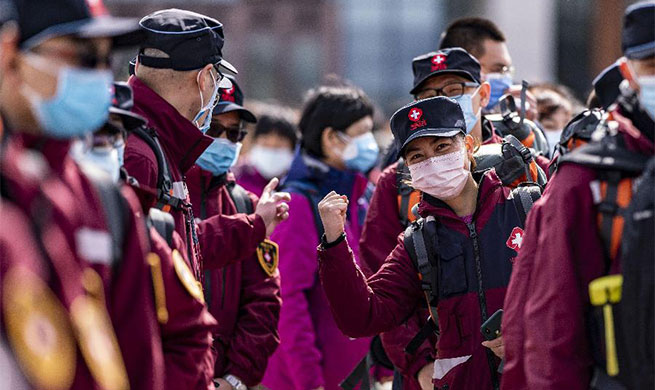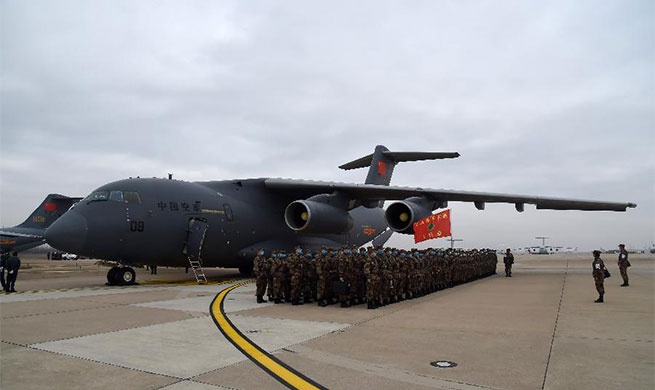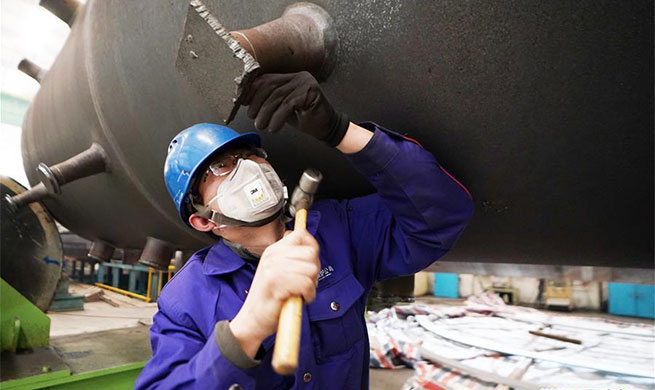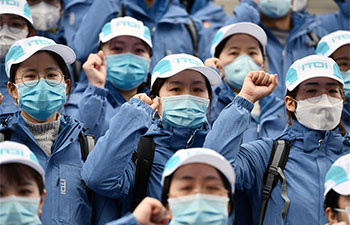UNITED NATIONS, Feb. 13 (Xinhua) -- UN High Commissioner for Human Rights Michelle Bachelet on Thursday stressed the indispensable role of transitional justice in peacebuilding.
"We know that lasting peace is interlinked with justice, development and respect for human rights. We know that peace does not automatically break out when weapons fall silent and atrocity crimes cease," she told a Security Council open debate on the issue of transitional justice.
"To be able to rebuild lives, without fear of recurrence, and for society to move forward, suffering needs to be acknowledged, confidence in state institutions restored, and justice done."
Transitional justice processes that are context-specific, nationally owned, and focused on the needs and informed choices of victims can connect, empower and transform societies, and thereby contribute to lasting and just peace, said Bachelet via video teleconference from Geneva.
For a society to truly succeed in establishing a transition to sustainable peace, issues such as systemic discrimination and exclusion, institutional deficiencies, unfair power structures, inequalities and structural impunity must be identified, acknowledged and addressed.
Guarantees of non-recurrence often relate to institution building. It is also essential to ensure the broadest possible participation of civil society organizations in decision-making, she said.
In virtually every conflict or post-conflict situation, it is particularly crucial for military and police forces, and more broadly, all institutions of government to regain the confidence of traumatized and abused communities. Fair, even-handed and accountable use of public power is central to rebuilding shattered trust in law enforcement. To this end, vetting processes and security sector reforms should be given high priority, said Bachelet.
The international community, and the Security Council, in particular, have key roles in assisting transitional states in these complex processes by sharing experiences, mandating international support, and encouraging the implementation of genuinely comprehensive approaches, she said.
Transitional justice should not be seen as an alternative to criminal accountability for perpetrators of atrocity crimes, she warned. Criminal accountability, which is vital, should be accompanied by a broad range of complementary measures to support truth, justice, reparation and guarantees of non-recurrence, which help to break cycles of violence.
There is clearly no single way to get the mix of these measures precisely right. But there is a way to get it wrong -- and that is to consider that victims' rightful demands for justice are an inconvenient distraction that can be papered over or indefinitely delayed. Failure to engage in such processes will not resolve conflicts. It will fuel recurrence, she warned.
"I encourage the Security Council to acknowledge and make full use of the transformative impact of transitional justice in its consideration of matters of international peace and security."




